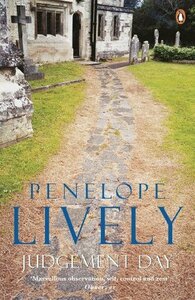Take a photo of a barcode or cover
emotional
reflective
sad
medium-paced
Plot or Character Driven:
Character
Loveable characters:
Yes
Lovely short book for those looking for an introspective and mundane story. I enjoyed it despite being highly observant and slow, and the philosophical reflections of the main character, Clare, kept me wanting to read more!
emotional
funny
medium-paced
Plot or Character Driven:
Character
Strong character development:
Complicated
Loveable characters:
Complicated
Diverse cast of characters:
Complicated
Flaws of characters a main focus:
Yes
It took me a minute to get into this book but once I got in I enjoyed it, though it ended up much sadder than I expected. Which is fine, but was a surprise. I loved the main character - Claire - a sharp-edged woman who just goes through life being herself no matter how people respond to that but is aware that not everyone loves her. Also appreciated the time period - late 70s ish (published in 81) - as the references to "the war" reminded you it wasn't that long before that time period and of course in England it had an even greater impact, but it also felt a lot like today. Interesting book.
A novel about the randomness of fate, and not by any means a cheerful read.
reflective
sad
medium-paced
Plot or Character Driven:
Character
Strong character development:
Yes
Loveable characters:
No
Diverse cast of characters:
Yes
Flaws of characters a main focus:
Yes
I raced through this and thought it was an extremely elegant novel. One of those books who truly expose the character of England and some beautiful and insightful descriptions of English village life and the decline of religion and what now stands for community in its place.
“A muddled place–its associations incoherent, its strata confused. Ugly for the most part, but shot here and there with grace: an avenue of old limes, a Georgian house in the High Street, a cottage-lined alley offering a slice of blue-distanced landscape. The church.”
I really liked the character development, particularly drawn to Mrs Paling and her trying to create a life in the village where she does not naturally fit in.
“A muddled place–its associations incoherent, its strata confused. Ugly for the most part, but shot here and there with grace: an avenue of old limes, a Georgian house in the High Street, a cottage-lined alley offering a slice of blue-distanced landscape. The church.”
I really liked the character development, particularly drawn to Mrs Paling and her trying to create a life in the village where she does not naturally fit in.
I've been on a recent Penelope Lively binge. She's my version of Maeve Binchy. Better writer, easy to get caught up in her stories. I like her female protagonists who are always prickly, never goody two shoes and usually acerbic in their judgments of the people around them. MOON TIGER will always be my favorite of hers, but the others are engaging.
emotional
reflective
medium-paced
Plot or Character Driven:
Character
Strong character development:
No
Loveable characters:
Complicated
Diverse cast of characters:
No
Flaws of characters a main focus:
Yes
I love this book. I love the way Penelope Lively conveys a scene with pitch perfection from different characters' perspectives. I love how her characters spring to life in a matter of paragraphs. I love that she raises big issues (faith, the nature of history, what truly matters, what lingers through time) through a story focused on one small neighborhood, in one moment in time. And her use of language! Genius.




